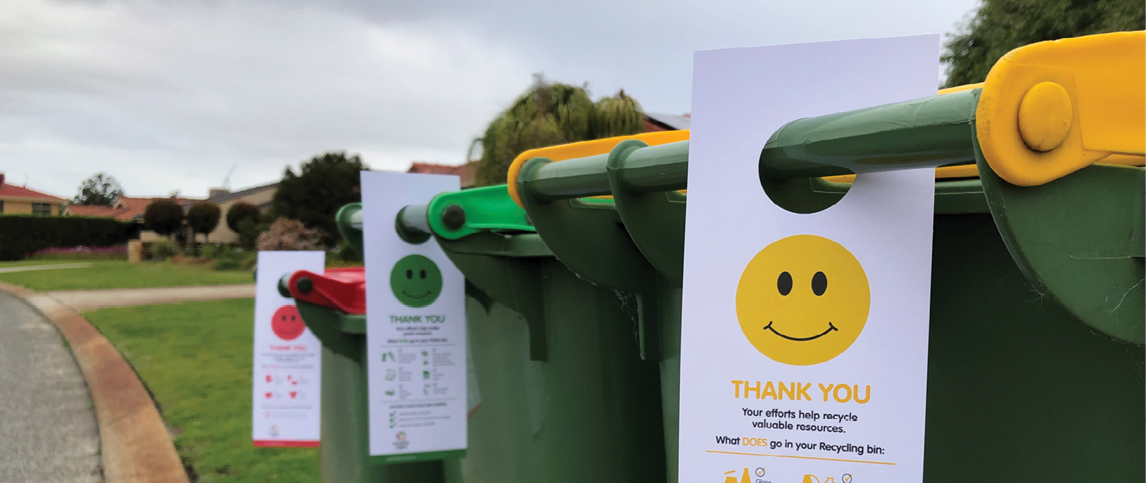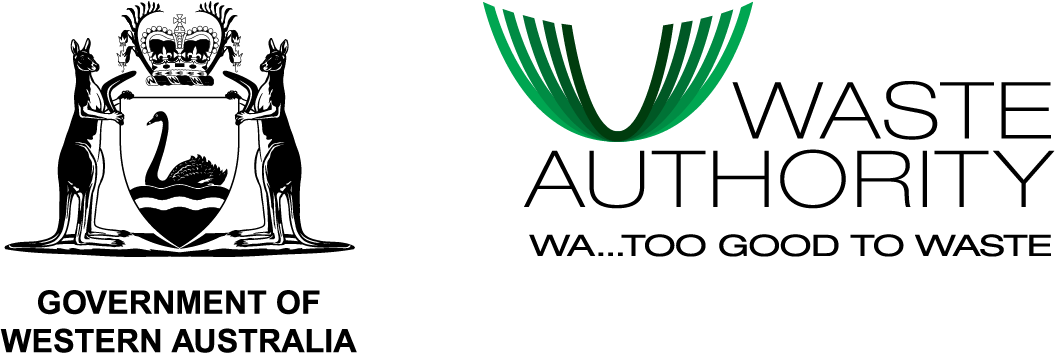Bin Tagging Program

Encouraging householders to source separate materials into the correct bin at the kerbside is a significant challenge for waste management practitioners. Using a combination of tools and strategies, the Bin Tagging Program has been designed to improve kerbside source separation.
Bin tagging is a method of providing direct feedback on the content of General Waste, Recycling, Food Organics and Garden Organics, and Garden Organics bins to residents by placing a tag on each bin to indicate if the contents are appropriate. The tags provide specific feedback on the contents of each bin as well as some general guidance on what can and can’t be placed in kerbside bins.
Bin taggers conduct a simple visual assessment of the contents of each bin at kerbside prior to collection. Data for each household is collected based on this assessment. A bin tag is then placed on the bin, providing tailored feedback about the contents of the bin.
The Program can provide both incentives and enforcement options to encourage appropriate disposal practice. Enforcement occurs at the end of the bin tagging period and is only used in circumstances where bins are severely contaminated.
Expression of Interest: WasteSorted Bin Tagging Program
Expressions of interest for the WasteSorted Bin Tagging Program are now open.
The Program is available to WA Local Governments, with successful applicants eligible for up to $10,000 in funding to implement the Program.
Please ensure you have read and understood the Program Guidelines before submitting the expression of interest application form.
WasteSorted Bin Tagging Program Expression of Interest Application Form
To register your interest, email your completed WasteSorted Bin Tagging Program Expression of Interest Application Form, and Local Government logos, to the WALGA Waste Management Team (via [email protected]) by 5:00pm on Friday, 27 September 2024.
Program Guidelines
WALGA has prepared Guidelines which provide Local Government a step by step process to implement the Bin Tagging Program in their area. These Guidelines provide an overview of the Program and its achievements and go through step by step the planning, preparation, implementation and evaluation phases of the Program.
There is a set structure to the Program which links to how effective its implementation will be. These Guidelines identifies where certain elements of the Program are essential as opposed to when there are options for implementation.
Bin Tagging Program Guidelines for Local Government
Bin Tags
The bin tags artwork is available for a variety of bin configurations including 3-bin FOGO, 3-bin GO and 2-bin Recycling and General Waste. Please email the WALGA Waste Management Team for more information on how to tailor the bin tags for your Local Government.
Bin Tagging App - Privacy Policy
Western Australian Local Government Association (WALGA) prioritizes the privacy of any users of its apps. Personal information captured using our app is kept to a minimum and is limited to the information, entered voluntarily by a user, and necessary for operation of the app. All information captured is stored on a secure server.
The device ID for each phone that downloads the Bin Tagging app is only used for the purposes of the Bin Tagging Program implementation.
Program Development
2016 Rollout
The Bin Tagging Program was rolled out early 2016 with assistance from WALGA and funding from the Waste Authority. The Local Governments that were successful in securing assistance were the Towns of Bassendean and Mosman Park, Cities of Cockburn and Joondalup and the Shire of Capel. This project was funded by the Waste Authority through the Waste Avoidance and Resource Recovery Account.
The Bin Tagging Program:
Kerbside Behaviour Change Report
2015 Pilot Program
In 2014, WALGA was allocated funding by the Waste Authority to implement a community engagement and enforcement program that increased the recycling rate from kerbside collections and reduced contamination. This followed on from the ‘That’s Rubbish’ Campaign implemented in 2013/14.
To do determine the efficacy of the program a Pilot Program was undertaken in the Cities of Joondalup, Kwinana and the Town of Cambridge in February - April 2015.
The Pilot was very successful, showing increased rates of correct recycling and a decrease in the recycling in the waste bin. A funding proposal, for a larger roll out of the Program, was put to the Waste Authority.
The Bin Tagging Pilot Program:
Summary of Outcomes
